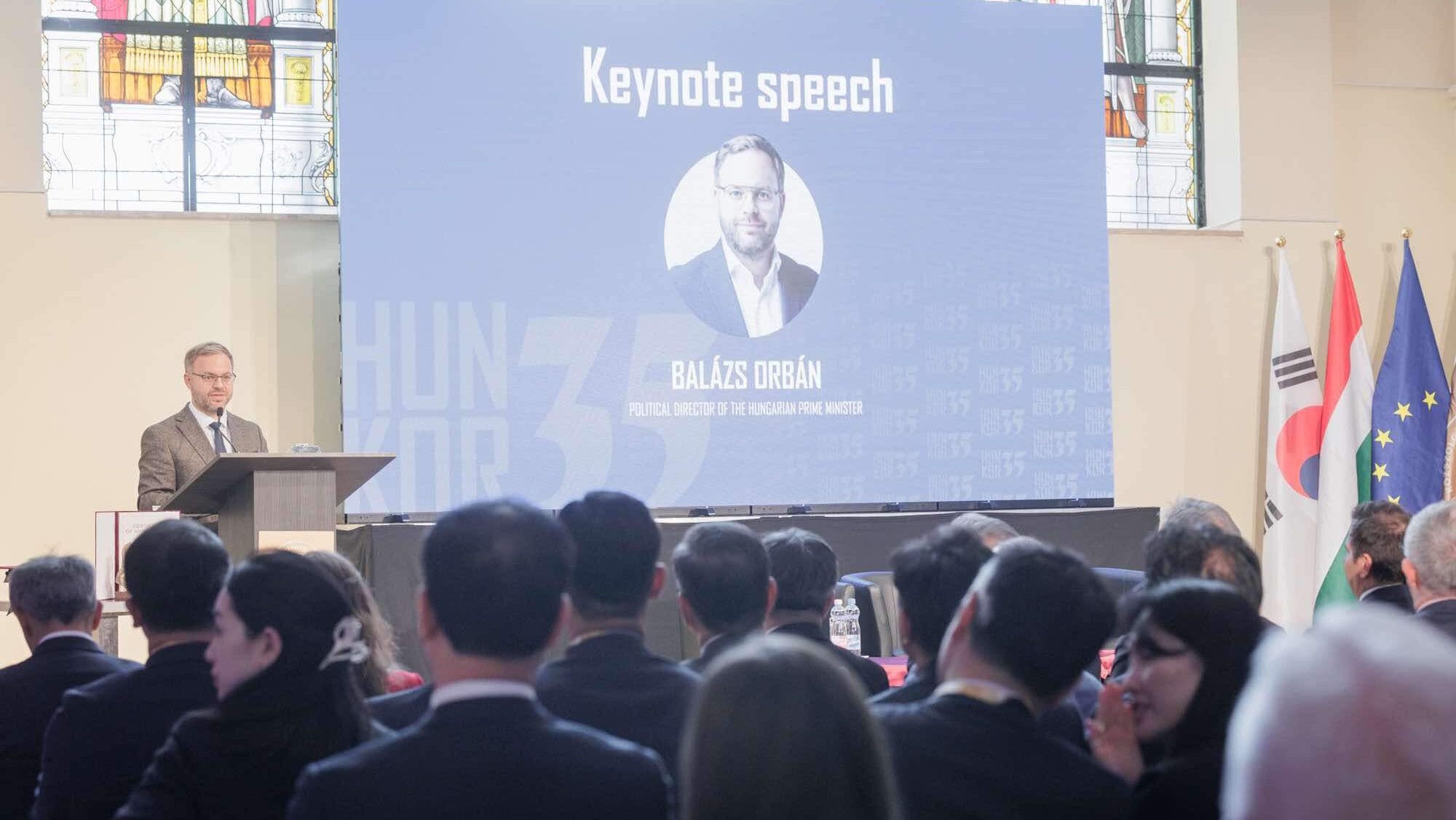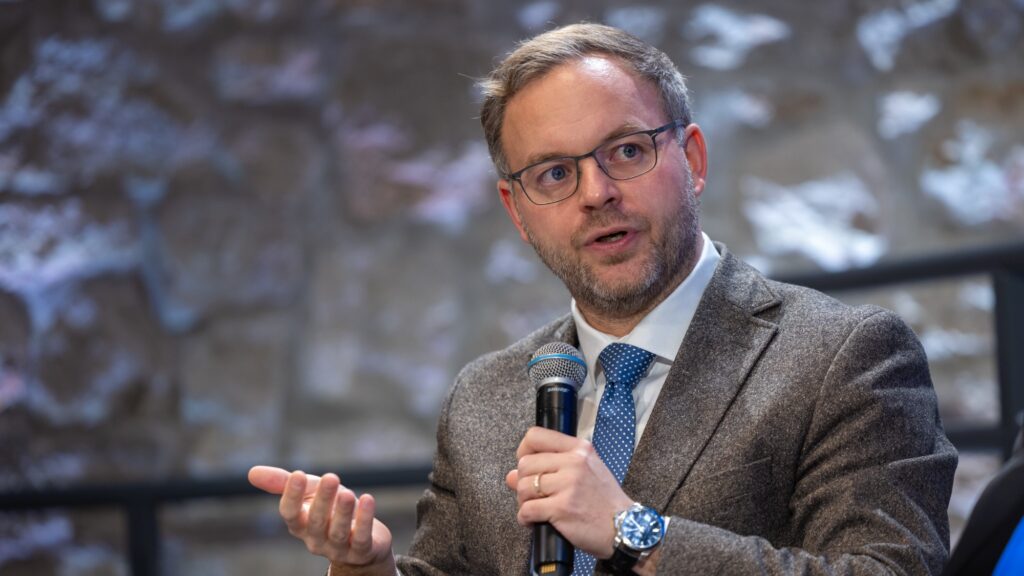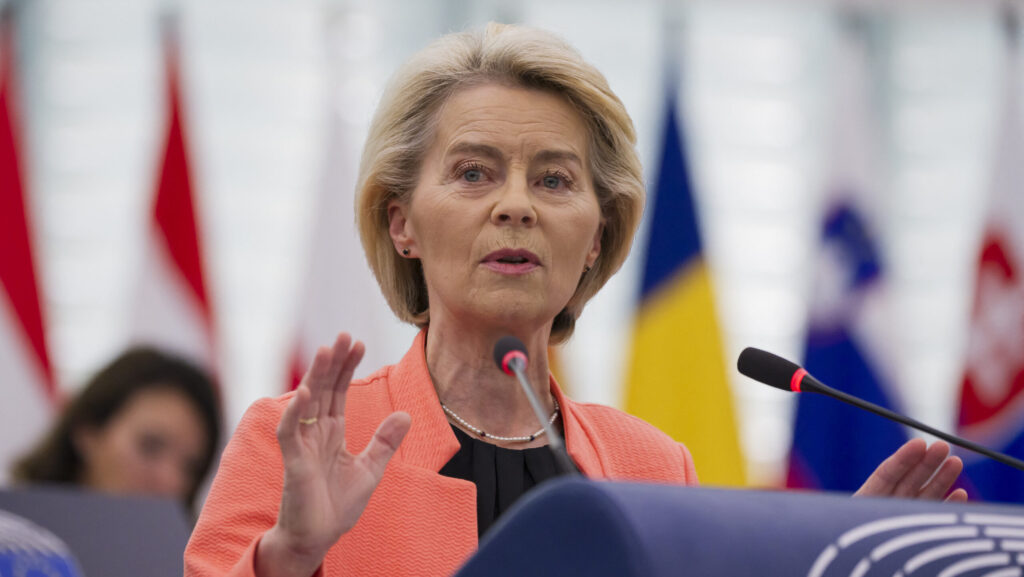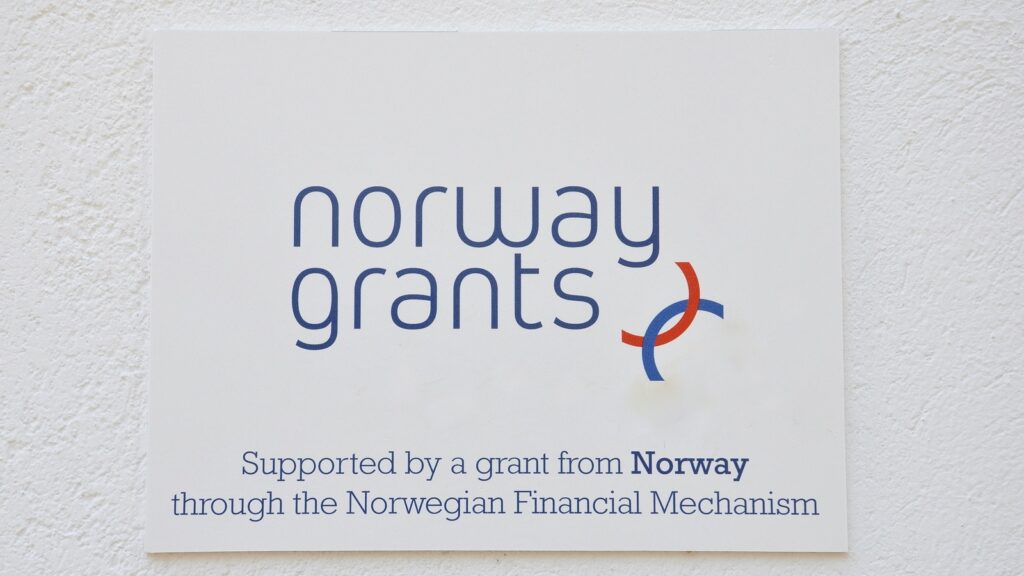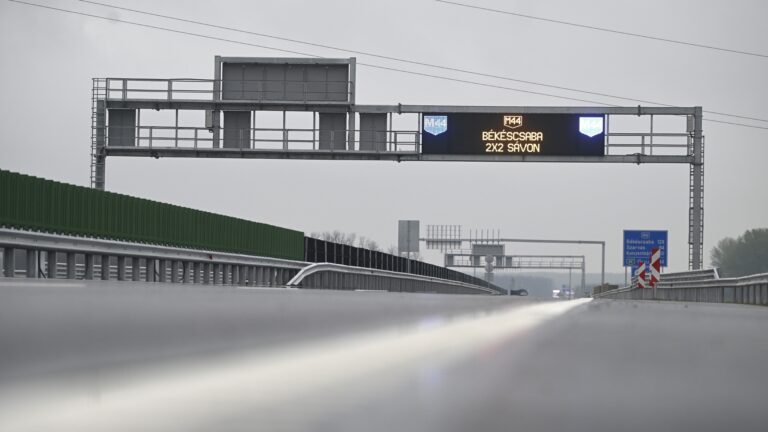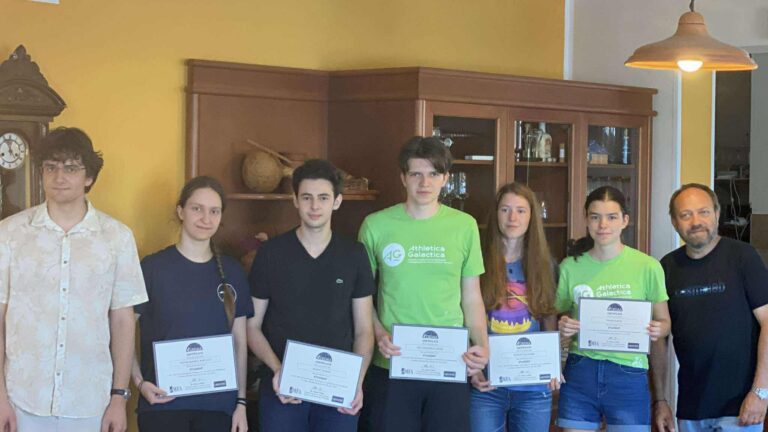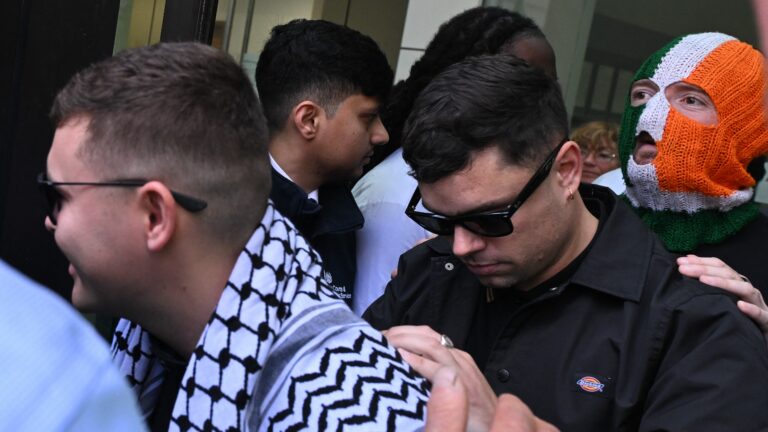To mark the 35th anniversary of the establishment of diplomatic relations between Hungary and South Korea, the Hungary–Korea Forum 2024 was held on Tuesday, 1 October at the Ludovika University of Public Service. During the event, the Ludovika Prize was awarded to Jaehun Ro, the founding Chairman of the Korean–Hungarian Friendship Association.
The opening speech was delivered by Balázs Orbán, the political director of the Hungarian Prime Minister. He emphasized that the deep-rooted economic, cultural, and diplomatic ties between South Korea and Hungary are not coincidental. ‘Both nations share a history of achievements, as well as struggles for freedom and survival,’ he noted. ‘We have built a work-based economy, developed a strong national identity similar to the South Koreans, and have learned to plan for the long term,’ Balázs Orbán added.
The two countries’ economies have developed a strong synergy in recent years, the political director noted. Over the past decade, the volume of trade has increased more than sixfold, rising from 1.3 billion euros to 8.2 billion euros, while the value of South Korean direct investments in Hungary has reached 8.5 billion euros.
‘Both nations share a history of achievements, as well as struggles for freedom and survival’
He highlighted that South Korea has been Hungary’s largest foreign investor on three occasions in recent years and was the second-largest last year. ‘These figures reflect not only mutual confidence but also the potential for long-term cooperation. Given the success of this partnership, Hungary is committed to its continuation—particularly at a time when the global order is experiencing significant changes,’ Orbán stressed.
He also discussed the ongoing shifts in the global order, including the rebalancing of economic power between Western and Eastern nations, the narrowing of technological disparities, the East-West competition for control over energy and mineral resources, the enrichment and social advancement of Asian societies, and the West’s growing military expenditure.
The West, Orbán noted, has responded to these changes by forming blocs, resulting in the relocation of production, a reduction in trade ties, and restrictions on technology transfer. The political director underlined that the Hungarian government views this process as detrimental and aligns with the perspectives of various international organizations.
1/2
— Balázs Orbán (@BalazsOrban_HU) October 1, 2024
Opening today’s Hungary—Korea Forum 2024 at @uni_nke w/ Park Jin, former Foreign Minister of 🇰🇷 & Kyudok Hong, South Korean Ambassador to 🇭🇺. pic.twitter.com/KJAVC3fE8l
‘Foreign direct investment has decreased by twenty per cent, and if the war in Ukraine is viewed as the onset of “geo-economic fragmentation,” it could mark the beginning of a prolonged period of decline,’ he warned. Orbán underscored that Hungary aims to remain outside these economic blocs and seeks to build productive relations with as many global players as possible through a policy of economic neutrality. Such a strategy, he argued, would enable Hungary to navigate between the two major global economic systems, even in the event of a global divide—a position for which the country is ideally suited, both economically and culturally.
Balázs Orbán emphasized that global changes extend beyond developments in the West, and to remain competitive, Hungary must remain open to opportunities from all regions, with a particular focus on countries that have experienced especially rapid economic growth.
He added that South Korea is one of the world’s leading economic and technological powers and a key investment partner for Hungary, providing ample reason to expand their cooperation into new areas based on the successful collaboration to date.
The event was also addressed by Hong Kyu-dok, South Korea’s Ambassador to Hungary, and Pak Jin, former South Korean Foreign Minister, both of whom spoke about the development of bilateral relations.
Related articles:

